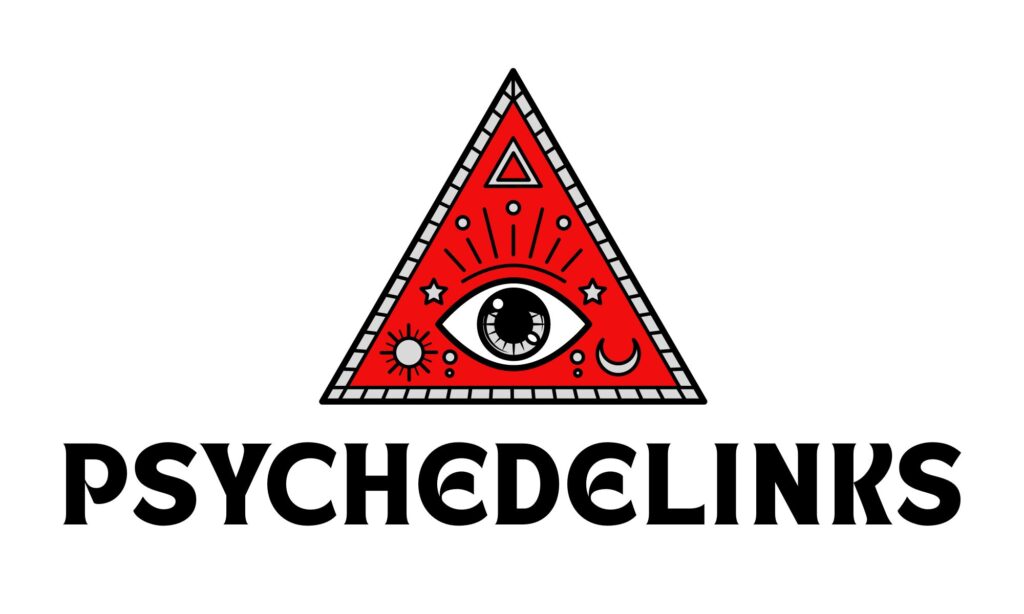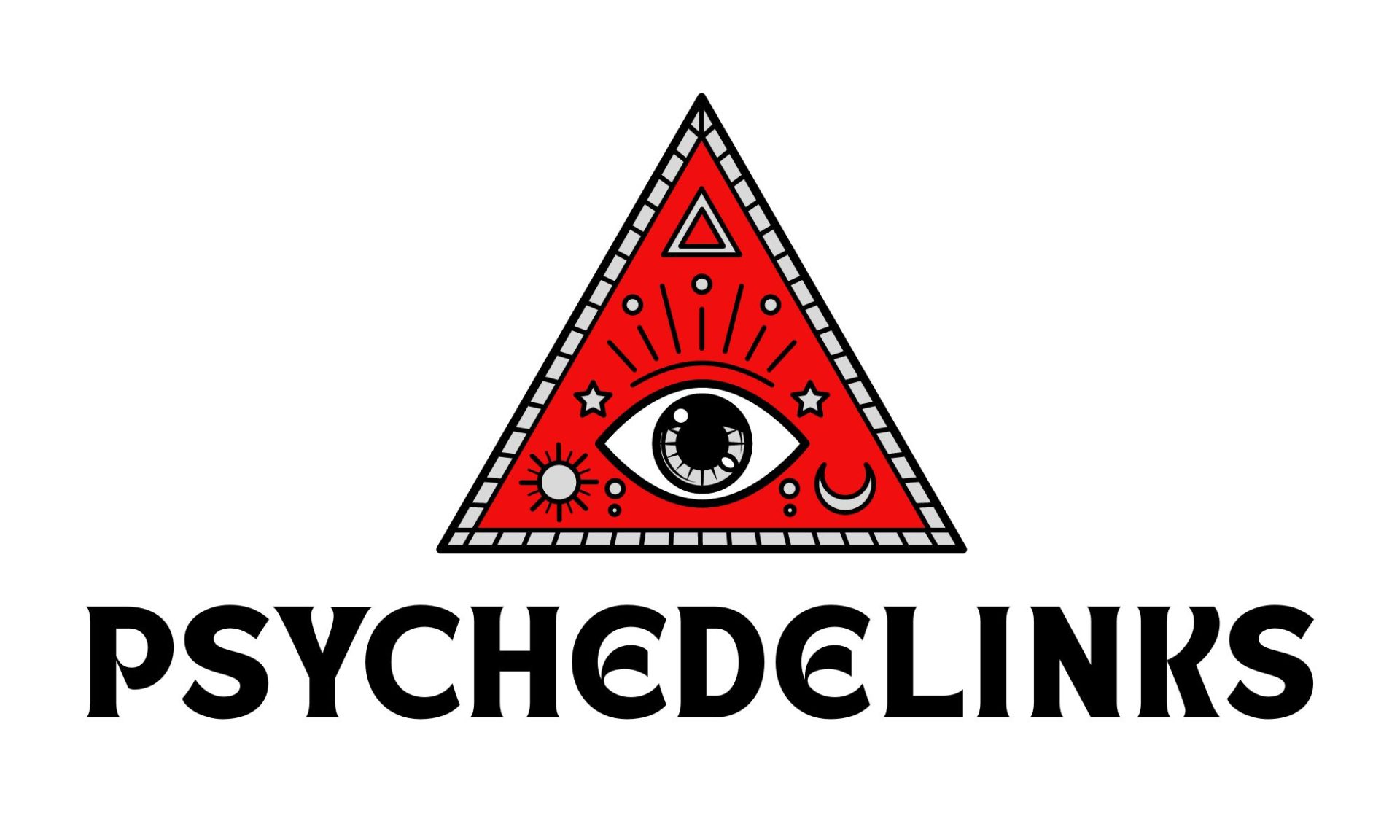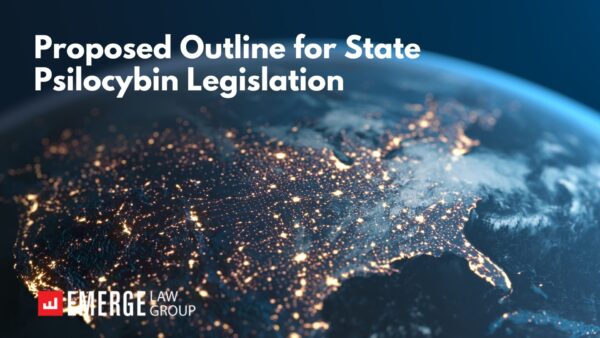PsychedeLinks is a curated selection of top news stories impacting business, research, and culture in the psychedelics ecosystem, crafted by Emerge Law Group’s groundbreaking Psychedelics Group.
Emerge’s Hot Take
From Veterans to Mushroom Growers, Denver Psychedelics Conference Attracts Thousands
The largest psychedelics conference to date is underway in Colorado this week. Psychedelic Science 2023, hosted by the Multidisciplinary Association for Psychedelic Studies (MAPS), boasts over 11,000 registered attendees, 200+ vendors, and high-profile speakers such as musician Melissa Etheridge, NFL quarterback Aaron Rodgers, Olympic figure-skater Sasha Cohen, and actor and rapper Jaden Smith. Also in attendance are Emerge attorneys Kaci Hohmann, Sean Clancy, Dave Kopilak, and Matthew Brockmeier. This conference follows the passage of CO Proposition 122 last fall, which decriminalizes growing and possessing psilocybin for those CO residents 21 and over and creates a framework for the use of natural psychedelics in therapeutic settings. To aid attendees in deciding which conference events to attend, the conference talks and workshops are organized into 11 different main topic headings (known as “tracks”), including Business, Therapy, Plant Medicine, and Community. “It’s exciting to see so many people from so many walks of life in attendance,” says Emerge Summer Clerk Leticia Maskell. “Public conferences such as this play a big role in destigmatizing psilocybin, and hopefully are early indicators of a robust and thriving ecosystem in the years to come.”
Other Noteworthy News
Federal Agency Looks To Support Research On Impacts Of Psychedelics Legalization And Decriminalization In States And Cities
“A top federal health agency is calling for research into the impact of evolving laws around psychedelics in cities and states across the country, including the effects of allowing regulated access to substances like psilocybin. The National Institute on Drug Abuse (NIDA) issued a “notice of special interest” on Tuesday (June 13) that discussed the rapid spread of the psychedelic reform movement, describing the ‘variety of approaches’ that different jurisdictions have pursued “that include legalization, decriminalization, reduced penalties, and more." As state-level policy developments continue—along with a growing number of local decriminalization measures that are being enacted in cities across the U.S.—NIDA is looking to fund research about the potential impact on consumption trends, public health and other outcomes. Examples of the types of research areas that the agency wants to explore include: the relation between decriminalization or legalization of psychedelic and dissociative drugs and rates of use among different populations, the impact of different regulatory frameworks (e.g., taxation, labeling, retail sales, pricing, marketing, etc.) on different health and incarceration outcomes, particularly among vulnerable populations, and the perceptions of harm of psychedelic or dissociative drugs following policy enactments and implementation.”
How Psychedelic Drugs Achieve Their Potent Health Benefits
“Psychedelic drugs are promising treatments for many mental-health conditions, but researchers don’t fully understand why they have such powerful therapeutic effects. Now, a study in mice suggests that psychedelics all work in the same way: they reset the brain to a youthful state in which it can easily absorb new information and form crucial connections between neurons. The findings raise the prospect that psychedelic drugs could allow long-term changes in many types of behavioural, learning and sensory system that are disrupted in mental-health conditions. But scientists caution that more research needs to be done to establish how the drugs remodel brain connections. Gül Dölen, a neuroscientist at Johns Hopkins University in Baltimore, Maryland, and her colleagues sought answers by studying how psychedelics affect social behaviour in mice. Mice can learn to associate socializing with positive feelings, but only during an adolescent ‘critical period’, which closes as they become adults. For their new paper, the researchers gave adult mice either MDMA or one of four psychedelic drugs not known to promote sociability: ibogaine, LSD, ketamine and psilocybin. Mice that received any of the psychedelic drugs were more likely to choose the social room than untreated mice, suggesting that each of the drugs could reopen the critical period. Each drug opened the critical period for a different length of time, ranging from one week for ketamine to more than four weeks for ibogaine. Dölen argues that psychedelics function as a master key that can unlock many kinds of critical period — not just one for sociability — by bestowing metaplasticity on neurons. The end result depends on the context in which the drugs were taken: the level of social engagement, in this case. The results indicate, she says, ‘that there’s some mechanistic relationship between critical period opening and that altered state of consciousness that’s shared by all psychedelics.’ Dölen is now testing whether the psychedelic drugs can reopen other types of critical period, including those for the motor system. Reopening it, she says, could lengthen the amount of time that people who have had strokes can benefit from physical therapy, which currently works only in the first few months after a stroke.”
Will the UK’s Ambitious Life Sciences Investment Power-Up the Psychedelic Sector?
“As a key industry driving growth in the UK, Life Sciences has become a focal point for the government's efforts to foster innovation through effective regulation. The recently unveiled life sciences investment package aims to do just that, introducing fresh commitments and funding initiatives that specifically target the acceleration of clinical trials and the advancement of mental health research. The multi-faceted ‘Life Sci for Growth' package builds upon the progress made since 2021, which has seen significant reforms such as the introduction of the Innovative Licensing and Access Pathway (ILAP) and the fast-track review for clinical trials. In a competitive global landscape where nations are striving to attract life sciences companies, this comprehensive package incorporates ten policies, supported by £650 million, to ensure that the UK remains the most enticing destination. Among the noteworthy components of this package, two are particularly significant for the psychedelic sector: £121 million to improve commercial clinical trials; and £42.7 million investment into mental health research. To address the challenges faced in conducting commercial clinical trials, the Government recently commissioned an independent review, which sought recommendations from various stakeholders across the sector. In response to the review's findings, the government has made five headline commitments, all of which are supported by the £121 million funding allocation. This news comes as an addition to the £10 million awarded to the Medicines and Healthcare products Regulatory Agency (MHRA) to speed up the approval process for cutting-edge treatments. A £42 million investment has been allocated for the delivery of Mental Health Mission also as part of the ‘Life Sci for Growth' package. This new mission, following a £30 million boost into mental health research in 2021, will specifically focus on testing innovative treatments and technologies for patients with unmet needs, making it particularly relevant to psychedelic drug developers. The ‘Life Sci for Growth' package demonstrates the Government’s recognition of the UK’s shortcomings and their commitment to change in order to position the UK as the most attractive hub for testing new products, particularly to treat mental illness. The Government understands that making the UK an attractive destination for commercial clinical trials requires regulatory reform, speedier study approvals, and improved access to data and patients. As Prof Andrew Morris, Director of Health Data Research UK says, ‘The one missing thing in [these] announcements that would transform life science research in the UK is a positive conclusion to the talks for the UK to access the EU’s Horizon research programme. Research today is built on team science with collaborations across the globe.’”
Subscribe
Subscribe to PsychedeLinks to receive essential biweekly articles on news, business, and culture in the psychedelics industry, delivered straight to your inbox.




